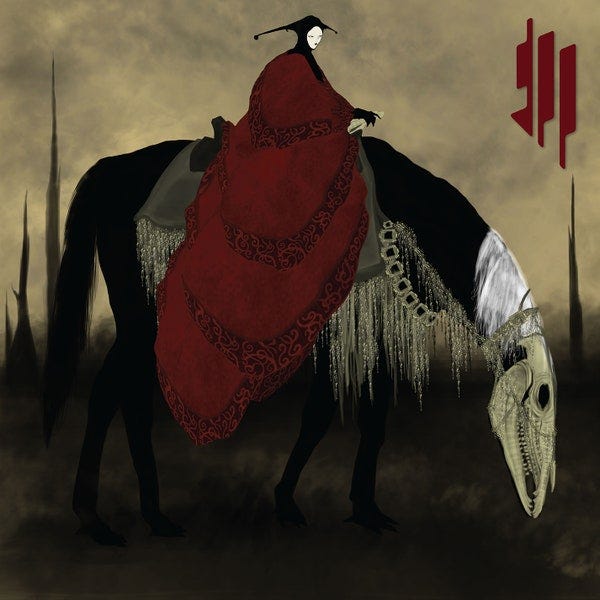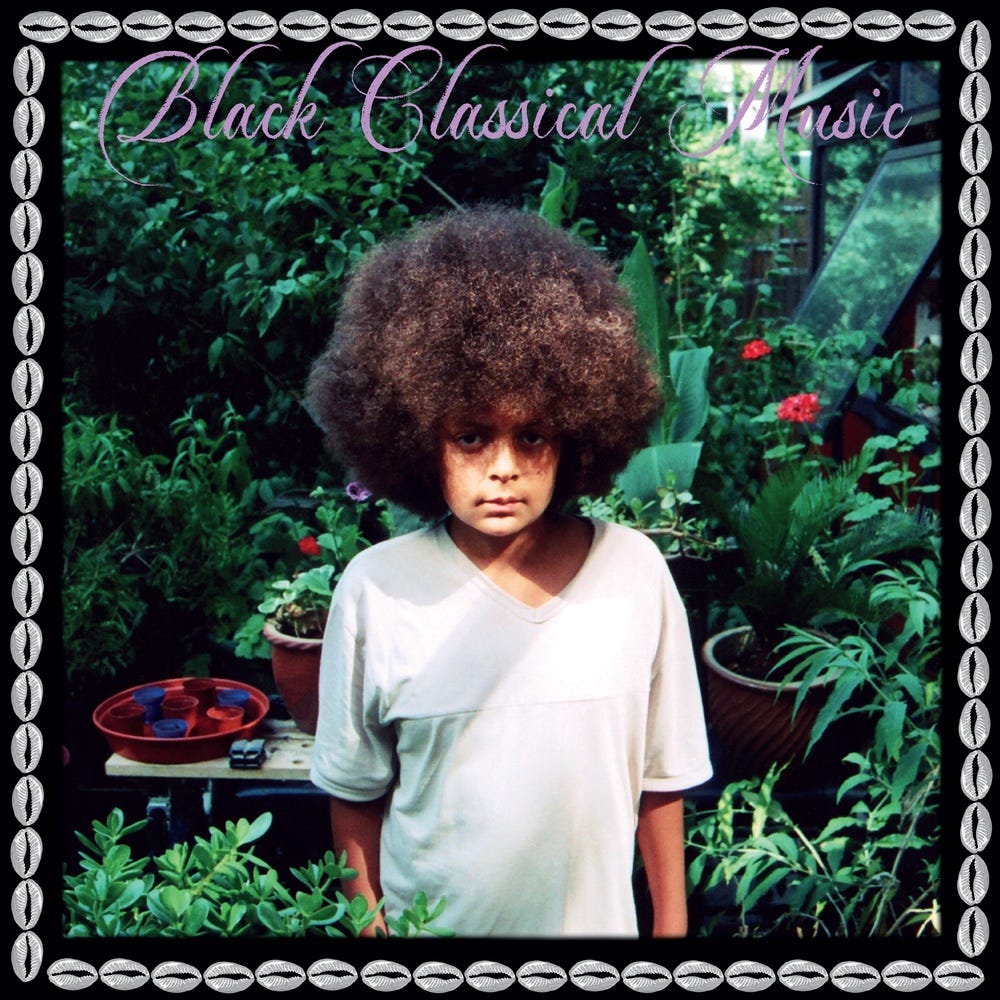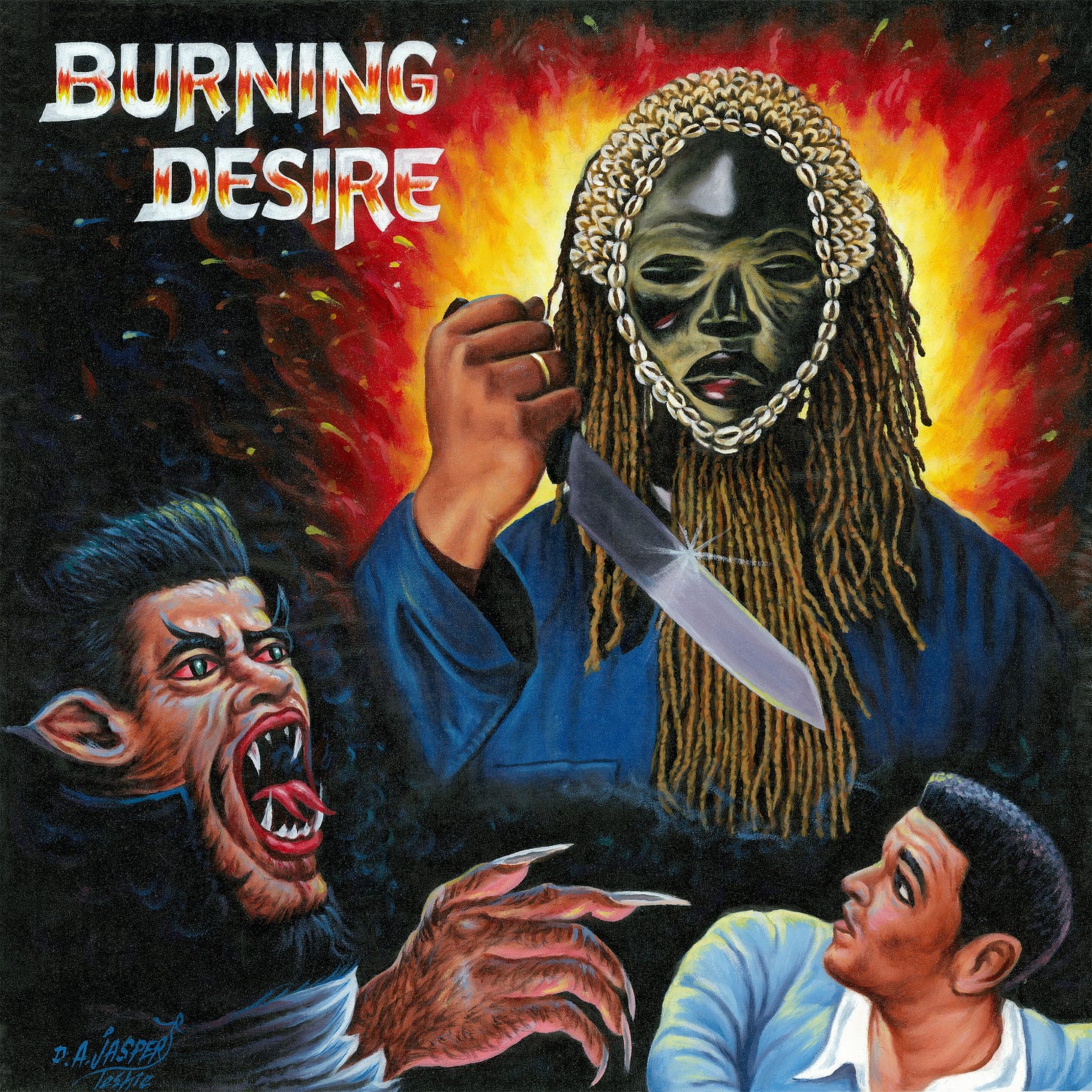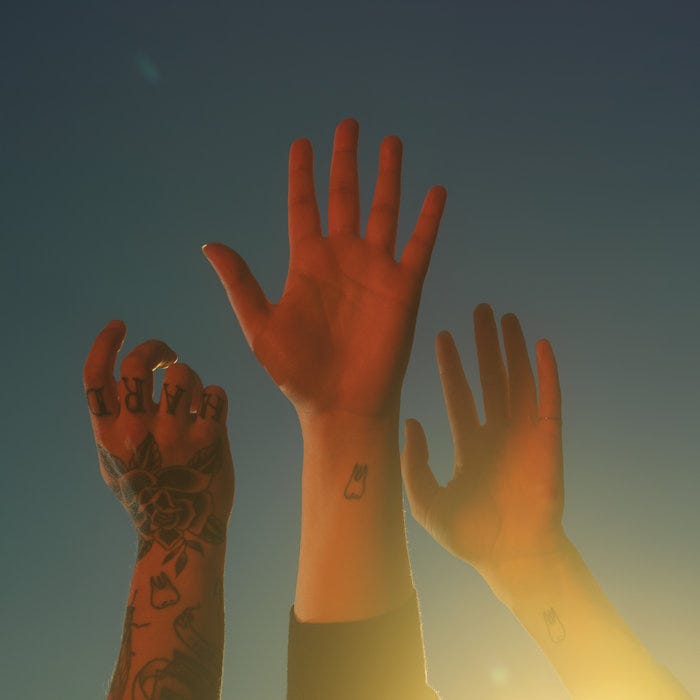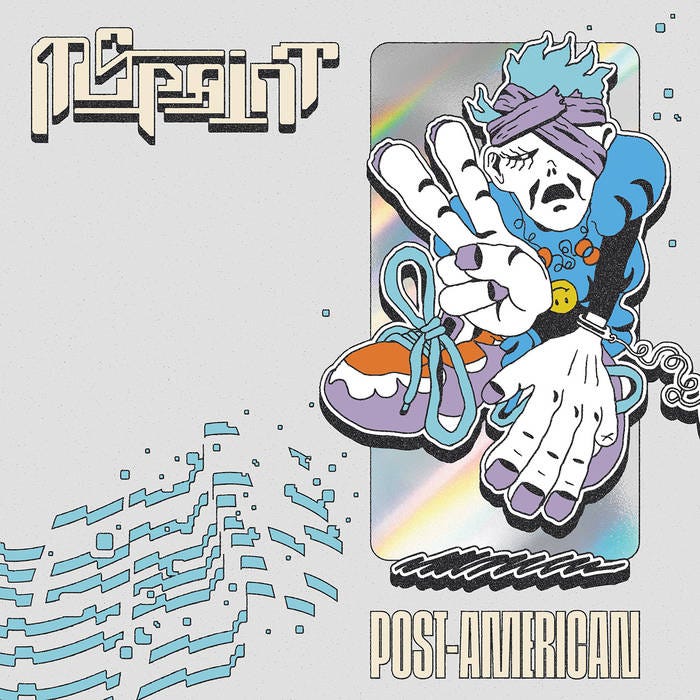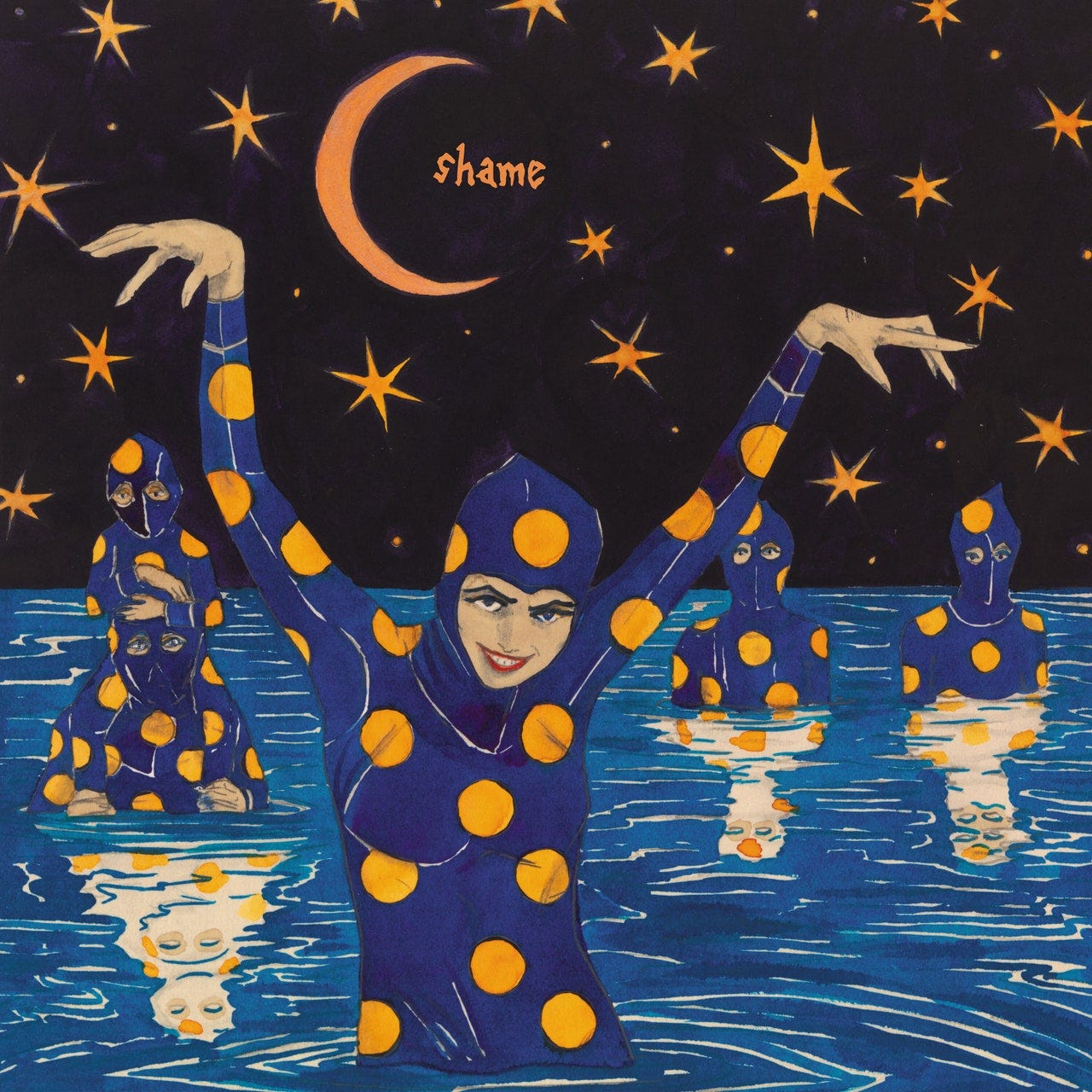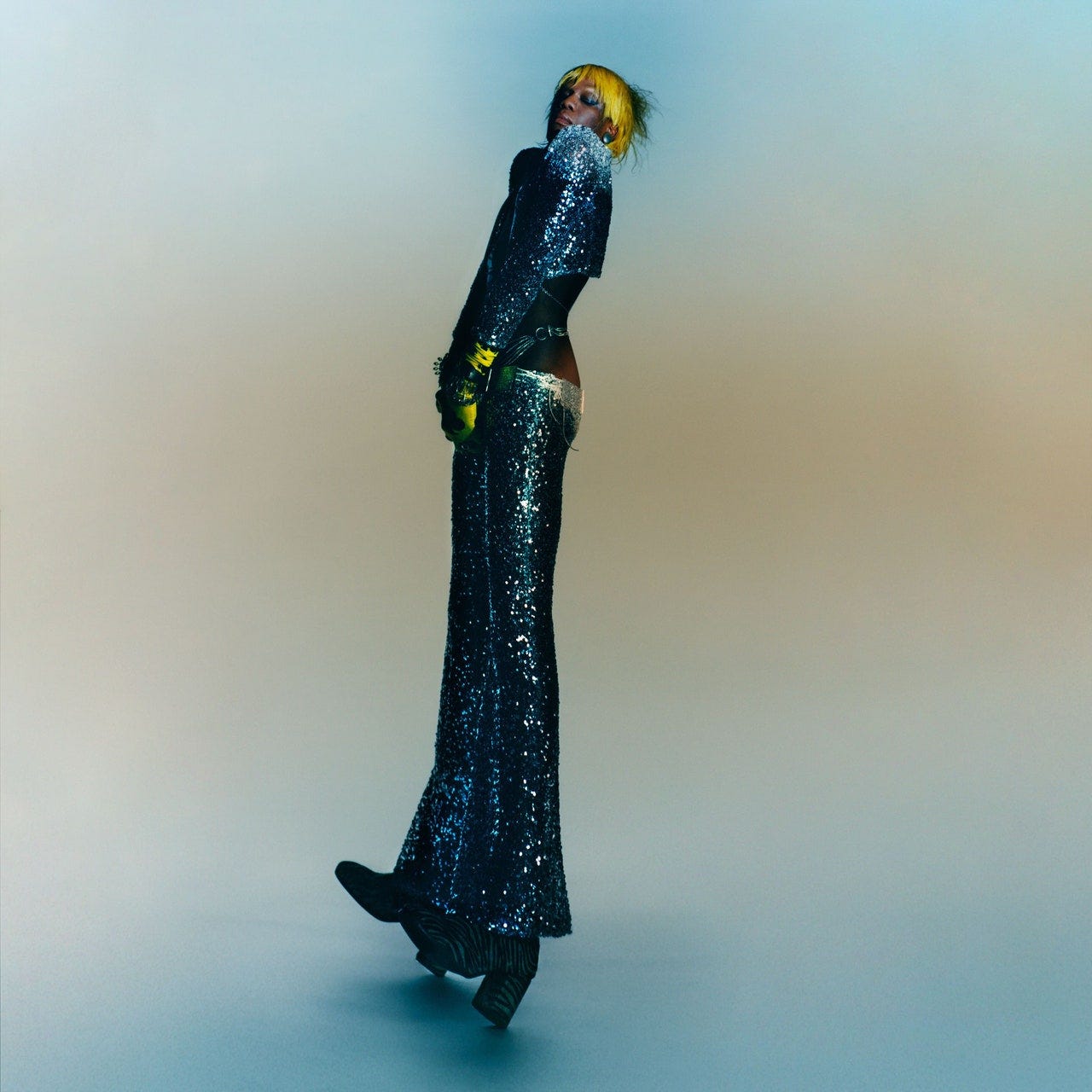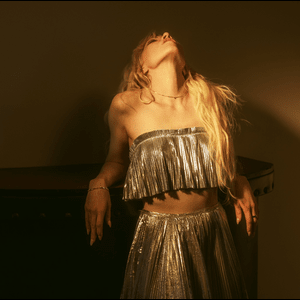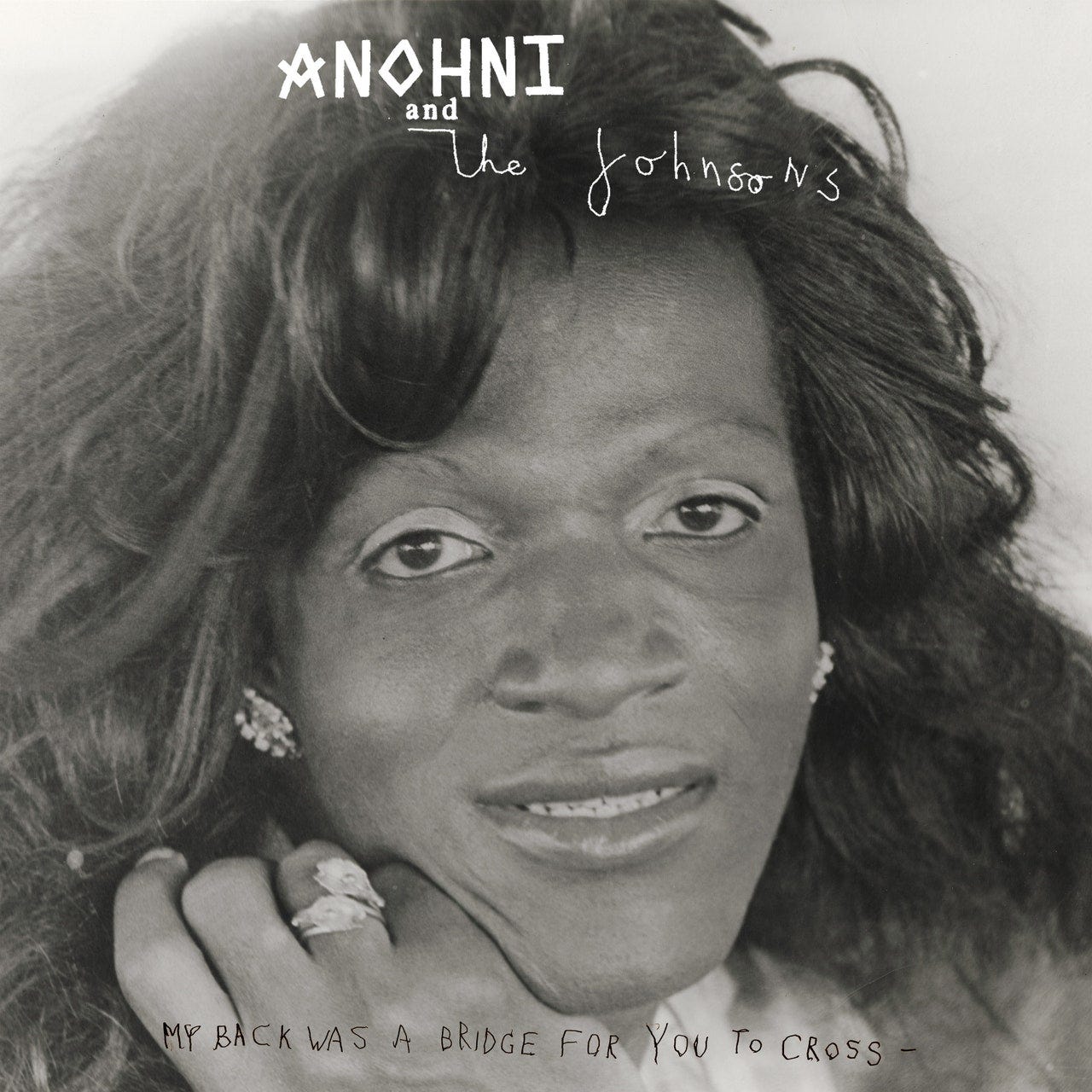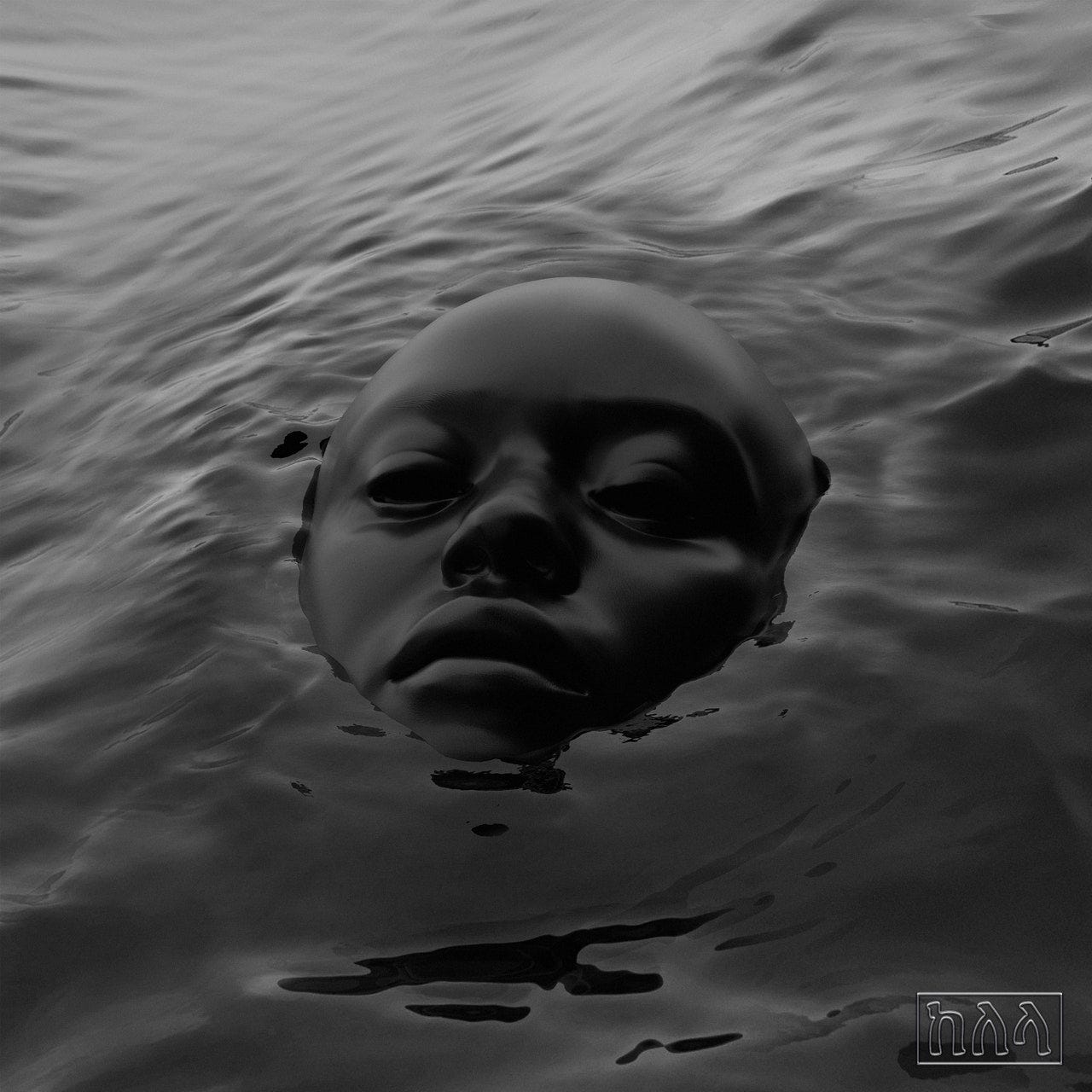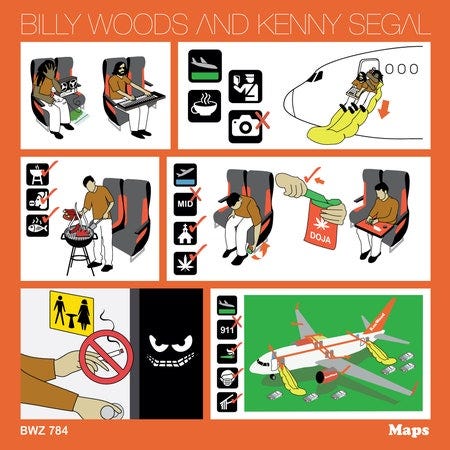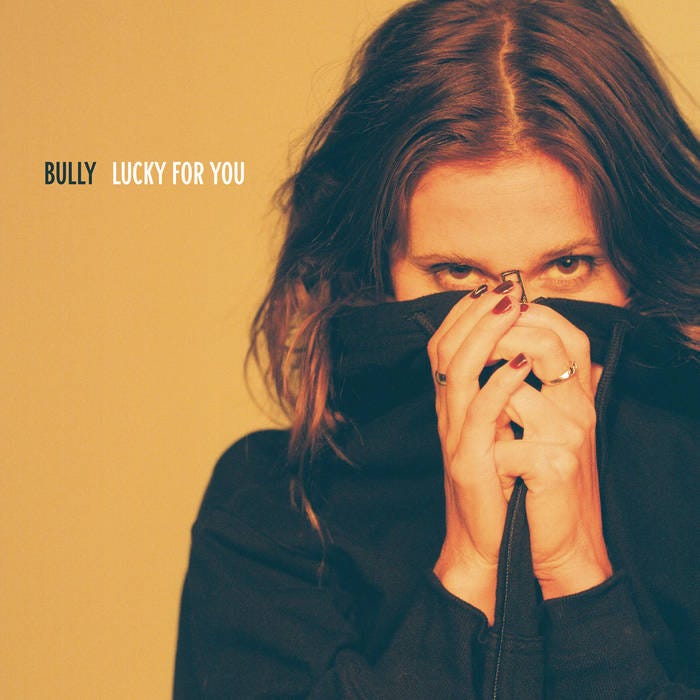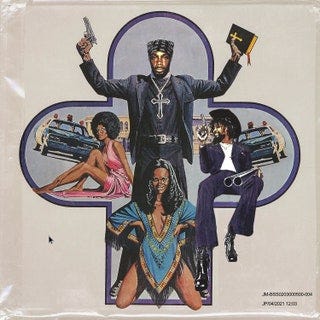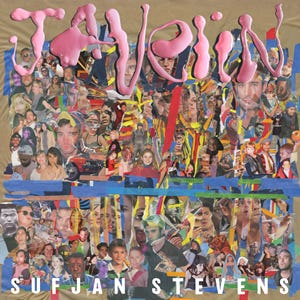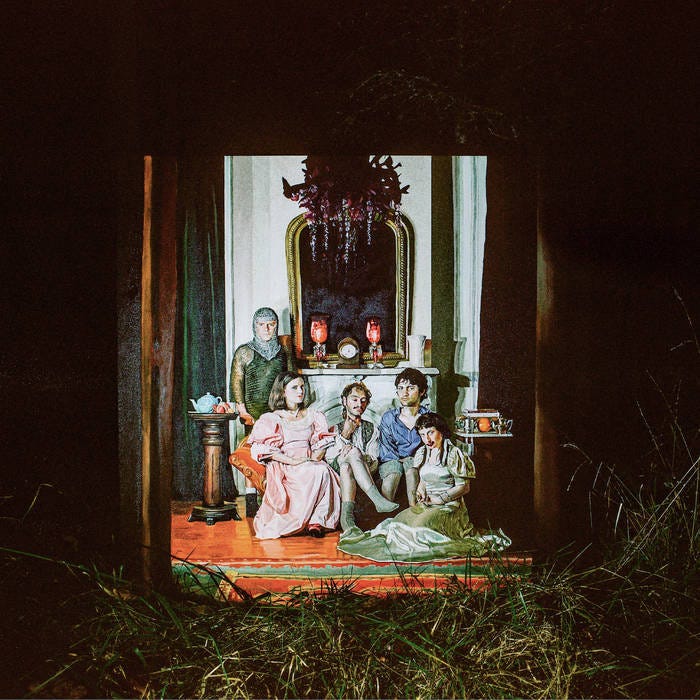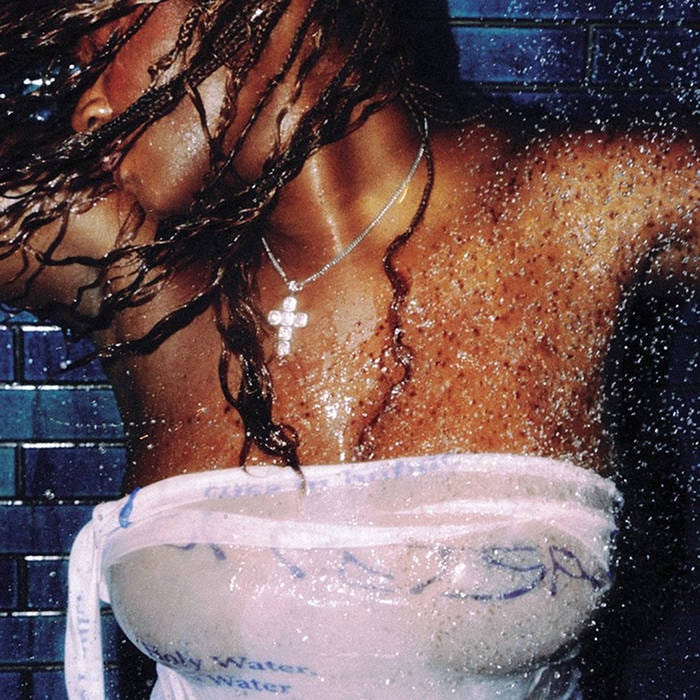Album of the Year 2023
Author’s Note
God, I cannot believe I’m making this longer than it already is. Welcome to the highly anticipated Andy’s Album of the Year List! This list is an attempt to distill another year’s worth of listening to new music. It’s obviously subjective and reacts to my personal preferences. But it’s also informed by my nimrod-critic-brain that seeks to understand the objectivity of what has been “good” this year. As a New Yorker music critic quotes on Twitter: "Lists are mnemonic, gathering things to remember, & also judgmental, asserting what's worth remembering."
As a music writer, this year was full of contradictions. Until recently, I’ve never felt like a legitimate “music critic.” But—god help me— at this point I’m really doing it. I’ve profiled artists I love, including ones featured on this very list. I’ve been published for my writing on long-time favorites and new obsessions. The idea that my writing is not only worth someone’s time, but money? That’s crazy. At the same time, I’ve faced an unfortunate reality that maybe, just maybe, no one gives a fuck about music criticism. At least not in a way that’s deemed ‘profitable’ in a collapsing media and entertainment industry. Publications I respect faced lay-offs. Everyone seems at risk of closure. In brief, it’s a bummer. Facing that reality is especially challenging because listening, talking, and writing about music feels so important to who I am. So for truly anyone reading—whether you’re my mom (Hi Mom), a close friend (Hi Matt, Hi Vicente) or, against all odds, someone who happens to care what I think about music— thank you! It means the world.
A special thank you for Cassidy for editing and unrelentingly pushing me to be a better writer. To quote your own words, I always think better with you.
25. Skrillex — Quest For Fire
Love him or hate him, Skrillex has shaped pop music of the last fifteen years. While he may not be solely responsible for pop’s transition to a Build-To-The-Drop Structure (think: “Closer” by The Chainsmokers, “We Found Love” by Rihanna, even “bad guy” by Billie Eilish), he’s played an oversized role in ushering it in. Since you can find his presence is everywhere, it’s surprising that Quest For Fire is technically his second solo album. In a way, not much has changed since 2011’s game-changing EPs Scary Monsters and Nice Sprites and Bangarang. He’s rebranded himself from Bro-step ringleader to UK-garage savant. In 2023, Skrillex can form a star-studded cast, but he’s still making melt-your-face electronic music. And like those EPs, his music is meant to be taken about as intellectually as a roller coaster. It’s all whiplash and headrush. It’s music that makes you move, whether it's voluntarily or through the rumble of its loud bass. Call it cheap thrills, but Quest For Fire sounds expensive.
24. NewJeans — Get Up
It was bound to happen eventually: a K-pop group so curated for American audiences that they’re irresistible. I don’t know much about K-pop, nor will I pretend to. I assume that, like other K-pop institutions, a big entertainment corporation honed NewJeans’ aesthetic for maximum appeal to K-pop fanatics, Gen-Z “indie pop” listeners, and music critics. What I do know is that in 2023, a lot more people (including me) learned about NewJeans. And nearly all of those people ended up loving them. They’re loveable! Get Up is breathy and light. The hook on “Super Shy” maneuvers between Erika de Casier’s breakbeat. It’s genre-less in the best way. They toy with DnB and early internet aesthetics, recalling fellow Gen-Z star PinkPantheress. But Get Up isn’t concerned with comparisons with her or anyone else. Concern isn’t a part of the NewJeans ethos at all. This is music for fresh Levis, big crushes, and sharp choreography. We’re in dire need of new pop stars right now, and NewJeans bring the perfect fusion of feeling, flirtation, and uncomplicated fun.
23. Yussef Dayes — Black Classical Music
It took a 75-minute album of non-stop Yussef Dayes for me to realize that he’s one of my favorite drummers making music today. His virtuoso and versatility is obviously at the center of his debut solo album Black Classical Music. There’s reggae grooves on “Pon di Plaza,” old-fashioned soul on “Marching Band,” indie fusion with Tom Misch, and plenty of flawless jazz drumming. But what makes Dayes remarkable is his balance of melody and rhythm. He plays melodically, using the kit to form little rises and falls that resemble a hook. But he never sacrifices a stank-face-inducing, right-in-the-pocket, nasty good fill. That’s why he has such crossover appeal beyond jazzheads and drum nerds. With Dayes on drums, the band has physical momentum and oomph that works in the same way as a good hip-hop beat or classic rock solo.
22. Geese — 3D Country
All five members of Geese are 21 and under, but they bring back Boomer-style, air-guitar-primed rock-and-roll with their second album 3D Country. The album is a soaring tribute to Dad Rock: the prog-like folds of “Undoer,” the Southern rock of “Cowboy Nudes,” the Zeppelin riffs of “2122.” Still, these Zoomers balance classic rock’s megalomaniac impulses with a bit of sarcasm. They refuse to be predictable. Lead singer Cameron Winter’s vocals careen from croon to shout in seconds, adding a kick in the teeth to any track that comes off too ready to be playlisted with the infamous Zeppelin cosplayers Greta Van Fleet. Sometimes, a song simply combusts into noise, hinting at their post-punk roots. 3D Country is a bombastic and energetic ode to ‘70s rock radio. But with its AI-generated cover and playful irony, it couldn’t be more modern. The kids are alright.
21. MIKE — Burning Desire
Burning Desire strikes a balance between energy and introspection that few rappers seem to manage these days. As with MIKE’s previous work, the album is wordy and dense. He draws heavily from MF DOOM’s colossal legacy. But it never loses its energy. Too many rap releases this year–Earl Sweatshirt’s VOIR DIRE, Maxo’s Even God Has A Sense Of Humor, Navy Blue’s Ways Of Knowing–sacrifice their momentum for introverted and melancholic writing. But those two things aren’t mutually exclusive. Burning Desire proves that the best albums do both. Under his producer moniker DJ Blackpower, MIKE keeps things fast-paced and focused. Every new track hops over the previous like a beat switch, moving from ‘90s R&B samples to distorted bass-breakers to ‘80s funk lines. There’s simply more here to catch on to. Burning Desire is proof of MIKE’s virtuoso as both a writer and producer. He proves you really can do it all.
20. Boygenius — the record
From the moment that boygenius announced the record, it already felt like a victory lap. Lucy Dacus, Julien Baker, and Phoebe Bridgers had nothing to prove after the initial boygenius EP and their respective solo releases in 2020 and 2021. The entire promotion cycle around the record was uncomplicated and light-hearted. They make out at the end of each of their gigs, and their magazine covers make fun of iconic (and male) rock institutions. It’s been a joy to watch these three dudes conquer the world with an album about friendship and mutual support. The record indulges in the usual for the trio: unhealthy relationships, grappling with one’s personal history, and self-actualization. But their symbiosis brings the whole thing to life. It gives the record its heartbeat. And audiences have clung to that heartbeat at every live show they’ve done this year. For each of Bridgers’s Paul Mescal dishes and Dacus’s excavation of religious trauma, the record reminds you that these musicians aren’t at it alone. The best music never is.
19. Ratboys — The Window
Ratboys’ benevolent, heartland rock reaches its full potential on their fifth album The Window. The album sounds like a collage of road trips, sunsets, and the Midwest. It’s an album that knows and loves its roots, carried by Julia Steiner’s (!!!) gentle twang and countless guitar solos. The Window isn’t some blindingly positive album. Its title track describes Steiner’s grandfather, who was unable to say goodbye to his wife when she was sick with COVID. “Morning Zoo” races with the anxieties, figuring out “how long does it take to find the peace that I wanted.” But Steiner's voice and the warmth of the band imbues this album with lightness. The Window is a comfort listen about the optimism of life. “It’s alive! It’s alive!” Steiner rejoices on the chorus of, you guessed it, “It’s Alive!” On The Window, that’s enough is cause for celebration.
18. Overmono — Good Lies
They’re Fred Again for the snobs who refuse to see an EDM show at Madison Square Garden. They’re Burial for people who go outside. They’re Four Tet for people who actually like to club. They’re your favorite DJ’s favorite DJ. No wonder Overmono crossed over from a niche electronic act to a music-nerd favorite this year. The brother-duo do UK garage better than anyone else right now. Popularized by artists like PinkPantheress, piri, and of course, Fred Again, the breakbeats of UK garage are particularly popular in the mainstream right now. But Overmono’s debut album Good Lies re-energizes those beats while staying faithful to the genre’s origins. Good Lies has a subtle, artful touch until it doesn’t, unleashing warbling bass and chopped up vocal samples at the perfect moments. Even though they make music with the taste and particularity of crate-diggers, Overmono still makes body music. They aim for their lofty aspirations without sacrificing the most important part of a good dance record: a good time.
17. MSPAINT — Post-American
MSPAINT makes beauty out of brutalism. They take an electronic approach to punk, opting for frigid synths instead of boiling guitars. The result is this year’s most inventive and alluring hardcore album. Every guitar-like artery in the music shocks with electrical precision. Vocalist Deedee’s full-throttle bark keeps the band from going full Uncanny Valley, a precarious balance that makes Post-American an anxious listen. MSPAINT barely consider themselves a hardcore band, which gives them the freedom of flexibility in the notoriously gatekept genre. Deedee deepens his vocals to a low shout on “Free From the Sun'' and delivers something like a hook on “Hardwired.” Post-American hits in all the same places as a good punk album: brutal, physical, and non-stop. But the band welcomes in new worlds of mechanical mayhem. And their optimism (the album ends on a song called “Flowers From Concrete”) finds meaning in their own post-post-post-hardcore-steampunk sound. We can only hope that MSPAINT are punk from the future.
16. Shame — Food for Worms
Shame has goon energy: the five-piece post-punk band peddle their snarky merch, their lyrics sneer with insolence, and if you’re lucky, frontman Charlie Steen will flaunt in tight golden knickers at a live show. Their third album Food for Worms indulges in their gooniest impulses. Steen delivers his devilish sarcasm, “Now you’ve got Pamela Anderson reading you a bedtime story/And every scratch card is a fucking winner,” he congratulates the listener on the headbanger highlight “Six-Pack.” Each band member contributes to make this a whip-tight rock record meant to be played loud: the nasty bassline on “Different Person,” the growl of guitars on “Alibis,” the double-time at the end of “Burning By Design.” But like the most loveable class clowns, Shame knows how to balance their humor with sincerity. Food for Worms is a standout in the yearly harvest of UK post-punk records because of its tenderness. “Adderall,” “Orchid,” and “All the People” are odes to the friendships between the boys in the band. Food for Worms is pranksters with a heart.
15. Jessie Ware — That! Feels Good!
Jessie Ware’s fifth album That! Feels Good! is all about the headrush joy of a night out. Picking up right where 2020’s What’s Your Pleasure? left off, Ware doubles down on lush disco straight from Saturday Night Fever. What’s Your Pleasure? ends with a question mark; That! Feels Good! is all exclamation points. What’s Your Pleasure? is a glass of red wine and a cigarette; That! Feels Good! is a shot of tequila and a line of…something stronger. After several records of melodrama and balladry, Jessie Ware takes utter delight in playing the dancefloor diva. And what makes her such a captivating presence is her own surprise at how well she thrives in this role. In a recent interview with Vulture, she gets to the essence of it when she jokes, “My husband’s constantly like, ‘Babe, they must think we are wild in bed.’ I’m like, ‘Let them think!’” The lead single “Free Yourself” brings up an essential point in Jessie Ware’s transformation into a vibrant dance queen: “If it feels so good, then don’t you stop.” That! Feels Good! follows on the heels of What’s Your Pleasure? because that record felt good. In Ware’s world of self-liberation, bliss, and confidence, is there any better reason?
14. Yves Tumor — Praise A Lord Who Chews But Which Does Not Consume; (Or Simply, Hot Between Worlds)
Yves Tumor had the best set of Coachella. As the sun set over the desert, they transformed the Gobi tent into a grimy and dark hellscape. Clad in leather and colored in reds, purples, and blues, they looked like a rock star from another world. Anyone who thinks that the rock is dead needs a reality check. Yves Tumor has it covered. Their fifth album is another Prince-indebted guitar record, covered in sludgy bass and guttural vocals. Nothing on Hot Between Worlds ignites in quite the way that their best song, “Kerosene!” does, but it’s more consistent than anything Yves put out before. They crank out Guitar Hero-level riffs and crackle like a maniacal demon. They hit the same pressure points over and over: the colossal guitars of “Ebony Eye,” devilish chants on “Operator,” and the arena-ready chorus of “In Spite Of War.” Yves Tumor cements their status as rock god for the 21st century on Hot Between Worlds: glam, satanic, primal, and utterly kickass.
13. Carly Rae Jepsen — The Loveliest Time
Carly Rae Jepsen fans (high-minded and morally superior individuals) don’t demand as much from their queen as other notorious fandoms. Carly has already done what any fan dreams of. She made EMOTION, an album so indisputable and untouchable, why bother her for anything ever again? Her records after EMOTION have been perfectly solid, and occasionally magical. No one has really needed Carly Rae Jepsen to attempt to replicate EMOTION or challenge herself to make something completely different. That’s what makes The Loveliest Time such a surprising treat. Like her other post-EMOTION work, it combines her impeccable ‘80s pop with a few experiments into new territory. But the color palette on this one is different, even from last year’s companion album The Loneliest Time. It’s warmer, sunnier, and more relaxed than anything Carly has ever done. She floats through “Kollage” and “After Last Night.” “Come Over” and “So Right” are effortless and breezy hits. The disco is sweatier, the basslines are harder, and the floor-fillers are down-right euphoric. We’ll never get another EMOTION, but this is a pretty sweet consolation prize.
12. Hotline TNT — Cartwheel
Will Anderson spends the first minute of Cartwheel charging up his guitars. They spatter and growl with distortion, like he’s testing the limits of how far he can go with it. When the drums finally kick in, it feels like an exhale. Hotline TNT’s second album alternates between these moments of tension and release, distortion and melody. The result is flawless shoegaze, fizzed-up grunge, gauzy indie rock. Whatever you want to call it, Cartwheel tingles like Pop Rocks. The staunchly DIY Anderson pays homage to his roots across the album, incorporating his friends’ names in lyrics, writing about house shows, and shouting out zine side-hustles. Hotline TNT aren’t a big band yet, but their newest album introduced them to more fans than ever before. Not everyone is going to fit in the basement show anymore. But luckily, Cartwheel finds him putting it to tape for everyone to discover.
11. ANOHNI — My Back Was A Bridge For You To Cross
ANOHNI sings with the weight of the world on her shoulders. Her malty, rich voice shapeshifts across the album. It croons on the opener, “It Must Change,” it raises to a shout on “Go Ahead,” and it weeps on “Scapegoat.” ANOHNI’s range of delivery reflects the album’s epic scope: climate, gender identity, assault and abuse. Despite this sweeping subject-matter, My Back Was A Bridge aims to be personal. It insists that the hopelessness that we feel for the climate is a type of personal loss, and that loss requires mourning and grief. In some ways, this is a “political” album. But that label feels diminutive. It’s never preachy or didactic. Nor is it a “difficult” listen. ANOHNI opts for the warmth of blues and soul, as opposed to the steely rage of 2016’s HOPELESSNESS. ANOHNI has felt the weight of the world, and on this album, she shares that weight with us.
10. Kelela — Raven
Raven is a record that submerges you, as advertised in its album artwork. Kelela’s second album is both minimal and all-consuming. You can hear every element in the mix: the breakbeat snare on “Contact,” the bassline that rolls through “Let It Go,” the shimmer of KAYTRANADA’s synth on “On the Run,” the coils of heat around “Fooley,” and, of course, Kelela’s Janet-indebted cooing. The songs sound like they’re moving through water, swimming in a dark, deep-sea rave. Raven is a club-kid-ready album. Kelela brought in stylish collaborators like LSDXOXO, Shygirl, and Bambii, and sequenced the album to flow like a DJ set. She marries techno and R&B; improvisational vocal ad libs and contemplative lyrics about identity and place. The results are as steamy as a dance-floor makeout. Raven is an album of transformation: it breathes in the harsh, smoky air of a club and exhales its own hypnotic world.
9. Greg Mendez — Greg Mendez
Greg Mendez writes songs like secrets: quiet, personal, and sacred. His self-titled album wields the power of a closely-kept mystery. It draws you in and beckons you to lean forward. Part of that magic comes from Mendez’s anachronistic writing. There is no 21st century post-genre experimentalism or adventurous production here. But the magic of this album is also from its unassuming smallness. Mendez could be your neighborhood singer-songwriter, covering The Lumineers at a coffee-shop. Instead, Greg Mendez is stark, beautiful, funny, and disarming. His songwriting resembles guitar-poets of years past, Nick Drake and Elliott Smith in particular. And like many of the artists inspired by Smith, Mendez relies on sparseness and vulnerable lyrics. But ultimately, it’s his humility that makes this album stand out from the pack. His quick stanzas and direct writing do more than enough. Greg Mendez stands on its own.
8. Billy woods & Kenny Segal — Maps
I spent most of the year saying that Maps was above my reading level. I’m all for experimental hip-hop, but Billy Woods is such a fastidious and abundant writer that his lyrics feel impossible to pin down. The wordplay is too dense; the references so specific; the flow of narrative is so seamless it’s hard to track. I had to let go and let Maps work its magic: the way Woods alternates between locking in and letting go of the beat, in and out of rhythm like ebbing waves. Or how he applies and retracts the force in his voice for a punchline (Personal favorite is: “My lovе language an obscure dialect/Pullеd me aside, explained she was just doing a bit, I was like, "Oh"). Maps unfolds like an atlas, offering humor, horror, and anything that Woods encounters on his tour-diary record. It’s worth the extra effort.
7. Bully — Lucky For You
According to Spotify, all “sad” music has soft, whispering vocals. Nearly every algorithmically-derived playlist that aims to evoke sadness is full of these types of singers. They’re quiet and they confess their diaries to an Aaron Dessner knock-off instrumental (this is a Gracie Abrams hate account). I’m over it. Bully’s fourth album Lucky For You is all amplification and gravel. Its version of sadness is big, brutal, and determined. Instead of wallowing, it ignites that sadness like a match to gasoline. “Hard to love! I’m too hard to love!” she barks across a chorus with vengeance. Lucky For You nods to a lineage of anger in ‘90s rock: Jagged Little Pill, The Breeders, Fugazi. Her guitars hum with distortion. Her voice spits out hooks. Lucky For You is an album that honors a forgotten truth in today’s landscape of Swiftian copy-cats and vibe-oriented minimalists. Sadness doesn’t always mean smallness. Grief is not always intimate. Sometimes, the best coping mechanism is turning the amp all the way up.
6. SZA — SOS
I know, I know. This came out in 2022. But 2023 was thoroughly SZA’s year (and if the Most Trusted Voice in Music can count albums from the wrong calendar year, so can I). Watching SZA ascend to a new echelon of pop fame has been odd. She deserves every ounce of success, but I can’t help feeling protective. SZA has the rare power to imbue every word she sings with vulnerability, fragility, and love. It’s uncanny. Whether she’s sampling Björk, belting a Paramore knockoff, trading verses with Don Toliver, or performing her chart hits, SZA makes every song feel devastating simply with her own magic. Her pen often helps, but it’s the voice first and foremost. SOS places her capacity for devastation front and center: “What I would do to make you feel just like this” she begs on “I Hate U;” “I need humanity” she confesses on “Ghost in the Machine”;” “Memories drown me the further I go” she fears on “Gone Girl.” So don’t chop up “Snooze” and speed it up for a TikTok! Don’t fade “Kill Bill” into a Morgan Wallen song on the radio! This album has too much heart. This isn’t about gatekeeping or preventing people from listening. It’s about protecting something that’s so good on its own. Keep SZA sacred.
5. JPEGMAFIA & Danny Brown — SCARING THE HOES
As much as JPEGMAFIA and Danny Brown probably hate their edge-core, Fantano-obsessed fans, they sure know how to cater to them. The sheer existence of this collab album is proof enough. And as much as I hate to be a part of that clamoring fanbase, I can’t help it. SCARING THE HOES is a blast. It’s a hyperactive and unforgettable flex. Danny Brown is consistent across, but this is Peggy’s album through-and-through: his glitched up sampling, meme-baiting bars, and the energy he brings when he shows up to a verse and yells his way through. Alt-boys and Twitter culture are familiar terrain for JPEGMAFIA, but he spends this entire album teasing the terminally online. Even the album title plays into the “I’m Not Like The Other Boys” complex of his fans. Well, Peggy. You win again. Call me a fish. I’m reeled in.
4. Caroline Polachek — Desire, I Want To Turn Into You
In 2022, Caroline Polachek dropped an opera track. Over-the-top and ridiculous? Sure. But you’ll buy into even her most extravagant and theatrical impulses once you hear her voice. Polachek’s gliding, serpentine shriek is a powerful tool, and she wields it with mastery. Her aria sets the tone for Desire, I Want To Turn Into You, an OId World opera of its own. But Desire is more than just a display of her vocal acrobatics. Polachek marks every piece of her second album with perfectionism. She and co-producer Danny L Harle design each synth so they whisper and whip like wind; she places motifs across different songs, constructing an intertwining labyrinth of familiar hooks. Every crackle and spark to this majestic album is fine-tuned. She described her creative process for Desire as a kind of descent where she sought to honor spirals, swirls, repetition, and meandering. Its songs feel so burrowed into and toiled over that one listen feels dizzying. It’s been nine months since it came out, and I still feel like I’m digging.
3. Sufjan Stevens — Javelin
There’s a flaw in the logic of the “Is this Sufjan Stevens lyric about gay or just about god?” Every Sufjan Stevens lyric is about god, at least a little bit. From the beginning of his discography to this year’s Javelin, Sufjan treats every single subject he’s covered with reverence and sanctity: Christmas music, the state of Illinois, the Brooklyn-Queens Expressway, even his own suicidal thoughts. That’s what makes him one of the best songwriters of this century. He sings about every single one as though it's holy. Maybe it’s just his feather-light voice, but if Sufjan is singing, it feels reverent. Javelin is no exception. Fear and loneliness, love and loss, grief and growth all can be found in the emotional collage of this album. Although Javelin is not Sufjan’s masterpiece, it’s his most definitive display of mastery. The songs start like Carrie and Lowell and end like The Ascension, growing out from its folk roots like branches out of trees. Stevens is at his best as a composer here. Of course this album is devastating. Of course it’s about god, holiness, and sanctity. Of course it’s about queerness, love, and mourning. Like all his other work, Javelin finds meaning at the intersection of all these things.
2. Wednesday — Rat Saw God
Welcome to Wednesday’s world: Southern, lovelorn, homegrown, and handmade. Karly Hartzman’s lyrics bring us in, combining places, memories, and anecdotes. The Planet Fitness parking lot, Drive-By Truckers songs, the house that was a “front for a drug thing,” cuddling with her beau MJ Lenderman and watching Formula One. The world that Hartzman builds on Rat Saw God gives this album its heartbeat. It is an equally essential part of Rat Saw God as any of its guitar riffs or pedal steel melodies. Rat Saw God is an ode to the landmarks, details, and scraps that make up who a person is. The band behind Hartzman ranges from bombastic grunge to lonely Americana, always reactive to Hartzman’s emotional intensity. She writes about the beauty and ugliness of her world with the love of a kid describing the street they grew up on. For her, it’s not perfect, but it’s home. We’re lucky to bear witness to it.
1. Amaarae — Fountain Baby
I’ve had a rule for as long as I’ve been making these lists (a tremendous waste of six years): an Album Of The Year should make me cry. And this year, there were plenty of records that did that. Sufjan Stevens’s grief and loneliness on Javelin, the burning emotiveness of Karly Hartzman on Rat Saw God, ANOHNI’s laments for the Earth on My Back Was a Bridge, the desperation of SZA’s voice on SOS.
Every list I’ve made has plenty of feel-good and confidence-boosting records too. Regardless, the top slot has always belonged to an emotional album. An album for walks in the rain or blasting alone with the lights off. Music that appeases my most pathetic impulses and turns me into a real-life Eeyore.
Fountain Baby is not for solitude. Wallowing doesn’t exist in its world. It’s for feeling your best. It’s about sex, money, partying, and power. It's sensual, sweaty, and sexy. It’s a stone-cold classic, and it’s AAOTY (Andy’s Album of the Year). [Insert confetti]
That’s not to say that Fountain Baby lacks depth. Amaarae–a queer woman–was raised in Ghana, a country that entirely rejects her identity. A 2021 statement from Ghana’s highest governing body says the following: “Nowhere does the Ghanaian culture subscribe to LGTBQI which is a taboo, inhuman, and alien to our society.” Fountain Baby is protest music. Every hookup described is equal parts a fuck and a fuck you. She uses sex as an assertion of her own right to exist. When Amaarae blisters through a line like “I like my coffee with some head in the morning,” take it as a bit more than a shallow flex (although it’s plenty fun as just that).
And besides, isn’t feeling good its own form of protest? At its core, pop music is for the masses--you hear it on the radio, in public spaces, online. Amaarae uses the shareability of pop for her own agenda. She chooses to be her hottest and gayest self on a record that can appeal to pop, rap, R&B, indie, and Afrobeats audiences at once. Fountain Baby is for everyone. It works as protest music because of its confidence and catchiness, not in spite of it. Trauma-slog, three-hour-long, bang-you-over-the-head art is not greater because of its seriousness. And much like Beyoncé’s Renaissance, the album’s hypnotic grooves practically beg to be blasted in queer spaces. Nothing makes conservative and anti-gay rhetoric look dumber than displaying how fun it is to be queer.
Still, I’m not streaming Fountain Baby just for its politics. Fountain Baby is this year’s Album Of The Year because, more than anything: it is a joy to listen to. Every moment draped in silk satin; every bite rich. It’s an indulgence without any of the guilt. The album’s scope is ambitious–catch the punkish flair on “Sex, Violence, Suicide,” the intricate drum programming on “Princess Going Digital,” the blend of timbales with a Pharrell beat on “Counterfeit,” the dissolution of “Come Home To God” into rock opera levels of drama. Even with all of that, it never sacrifices its ultimate goal: feeling good.
Every indie artist puts a violin on a bed of guitar and wants to call their new album lush. But Fountain Baby is true to the word. Amaarae fills each moment with syrupy, opulent, and addictive sound. The breaths underneath “Co-Star,” the luxurious bass on “Princess Going Digital,” the panning of the vocals on “Sociopathic Dance Queen.” There’s determination to make every listen immersive. Amaarae doesn’t waste a second of your time. Her voice is both sugar and spice. Every brag is sour; every come-on, bittersweet.
I’m sick of vulnerability being the most important criteria for AAOTY. This album is too endorphin-fueled to ignore. This year’s Album Of The Year is just as much about feeling deeply as Ants from Up There, Fetch the Bolt Cutters, and any other record I’ve selected for what we can all agree is the highest honor in music today. But those deep feelings aren’t devastating. They’re vibrant. They’re thrillingly alive. They’re joyful. The album’s title comes from the idea of a fountain as a source of plenty. Indulge in that abundance. Fountain Baby is about confidence and liberation. It honors music that exists for the simple, primal, hedonistic purpose of feeling good. For 2023, it was enough.

